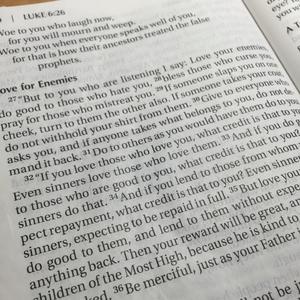 Contradicting or Complementary?
Contradicting or Complementary?
On first reading 1 Tim 3.7 and Lk 6.26 appear to contradict one another.
Here are the two texts:
“Woe to you when everyone speaks well of you, for that is how their ancestors treated the false prophets.” (Luke 6:26)
“He must also have a good reputation with outsiders, so that he will not fall into disgrace and into the devil’s trap.” (1 Timothy 3:7)
What are we to make of these passages? If you’d like to you can listen to the discussion we had on Sunday in the Watford church of Christ. Just go to the YouTube channel and you’ll find it here. It’s also up here as an audio file. The comments were interesting and insightful.
The two ideas that I found most engaging were these:
1. The word “everyone”
The passage in 1 Timothy does not command or suggest that an overseer is liked by everyone. Instead, it is important that their general reputation is a good one. The warning in Luke 6 is against being liked by everyone. The implication is that the overseer with a good reputation has that reputation because of good character exemplified by good conduct.
It’s OK for most people to like you most of the time. It’s not OK for everyone to like you all the time.
2. The Motives
The comparison with the false prophets in Luke 6 reminds us that they prophesied what they thought people wanted to hear. They sacrificed character for the sake of approval and popularity. A true prophet is too uncomfortable to be popular.
Of course, Jesus himself is currently popular with the crowds, but the day will come when they will call for his crucifixion.
What are your thoughts on these passages? How can a follower of Jesus tread the right line? What’s the best way to retain a good reputation without sacrificing principles?
Let me know what you think by dropping me an email, or leaving a comment below.
God bless,
Malcolm


